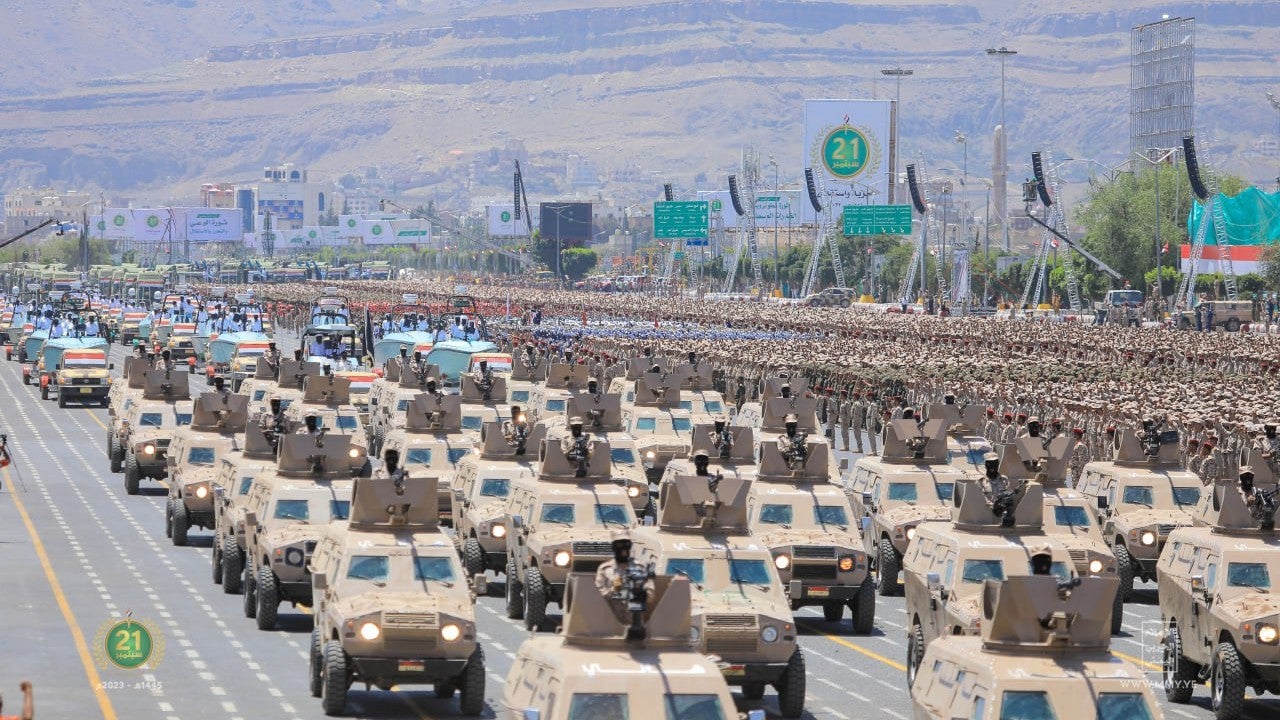
Yemen’s Houthi rebel group on Sunday (19 November) seized a cargo vessel in the Red Sea, which it claims belongs to Israel. The militia had warned it would attack Israeli ships in the Red Sea.
In footage of the hijacking released by the Houthis yesterday (20 November), armed Houthi fighters jumped aboard the moving Galaxy Leader ship from a helicopter. The 25 crew members were held at gunpoint as Palestinian and Yemeni flags were raised.
“The Yemeni armed forces deal with the ship’s crew in accordance with the principle and values of our Islamic religion,” Houthi spokesperson Yahya Sare’e said in a statement on X (formerly Twitter).
The exact whereabouts of the Galaxy Leader are unknown. It was believed to be en route from Turkey to India.
How has Israel responded?
The Israel Defence Forces said that the hijacking was an “Iranian act of terrorism” and “a very grave incident of global consequence”. It also maintained that “it is not an Israeli ship” in a statement on X.
The Houthis hijacked the Galaxy Leader because it is partially owned by Israeli billionaire Abraham “Rami” Ungar, Sky News and Lebanese media outlet Al Mayadeen reported.
Sare’e added that the Houthis will continue to target ships operated or owned by Israeli companies. The Houthis claimed the hijacking was “in solidarity with Palestinian people in the wake of the brutal Israeli aggression on Gaza”.
The Japanese Government yesterday (20 November) confirmed that the captured ship is operated by Tokyo-headquartered Nippon Yusen.
Japan has said it is appealing to the Houthis while calling on authorities in Saudi Arabia, Oman and Iran for assistance in releasing the vessel and its crew.
Two ships connected with Nippon Yusen have since diverted their routes in the Red Sea and Gulf of Aden, according to Reuters.
The Houthis control vast swathes of Yemen in defiance of a Saudi Arabia-backed coalition government, including the capital of Sana’a. The group has declared war on Israel, launching missile and drone strikes on key Israeli targets including the Port of Eilat, Israel’s third-busiest port.
Our signals coverage is powered by GlobalData’s Thematic Engine, which tags millions of data items across six alternative datasets – patents, jobs, deals, company filings, social media mentions and news – to themes, sectors and companies. These signals enhance our predictive capabilities, helping us to identify the most disruptive threats across each of the sectors we cover and the companies best placed to succeed.


